Experts reveal the 8 warning signs it's time to replace your hazardous old appliances – and what you definitely shouldn't delay or ignore
It's time for an upgrade if you notice any of these alarming signs


- 1. Humming, whistling or excessive noise
- 2. Rust or cracks
- 3. Smell of gas
- 4. It's not working well
- 5. Your energy bills shoot up
- 6. Circuit breaker tripping
- 7. Smoking or leaking water
- 8. Repair more costly
- What is the average lifespan of household appliances?
- Which brand of appliances last the longest?
While you're busy getting your home ready for fall and the hosting season, decluttering and cleaning tasks will pile up but how are your appliances fairing?
Consider the last time you replaced your often-used appliances. Most of us have had a trusty refrigerator in the kitchen for years, but how do you know when it's time to say goodbye?
Whether you're considering investing in one of the latest best vacuum cleaners, or taking the plunge on a brand new coffee machine, these tips from our experts will help make judging the time for a replacement easier.
8 signs it's time to replace your old appliances
1. Humming, whistling or excessive noise
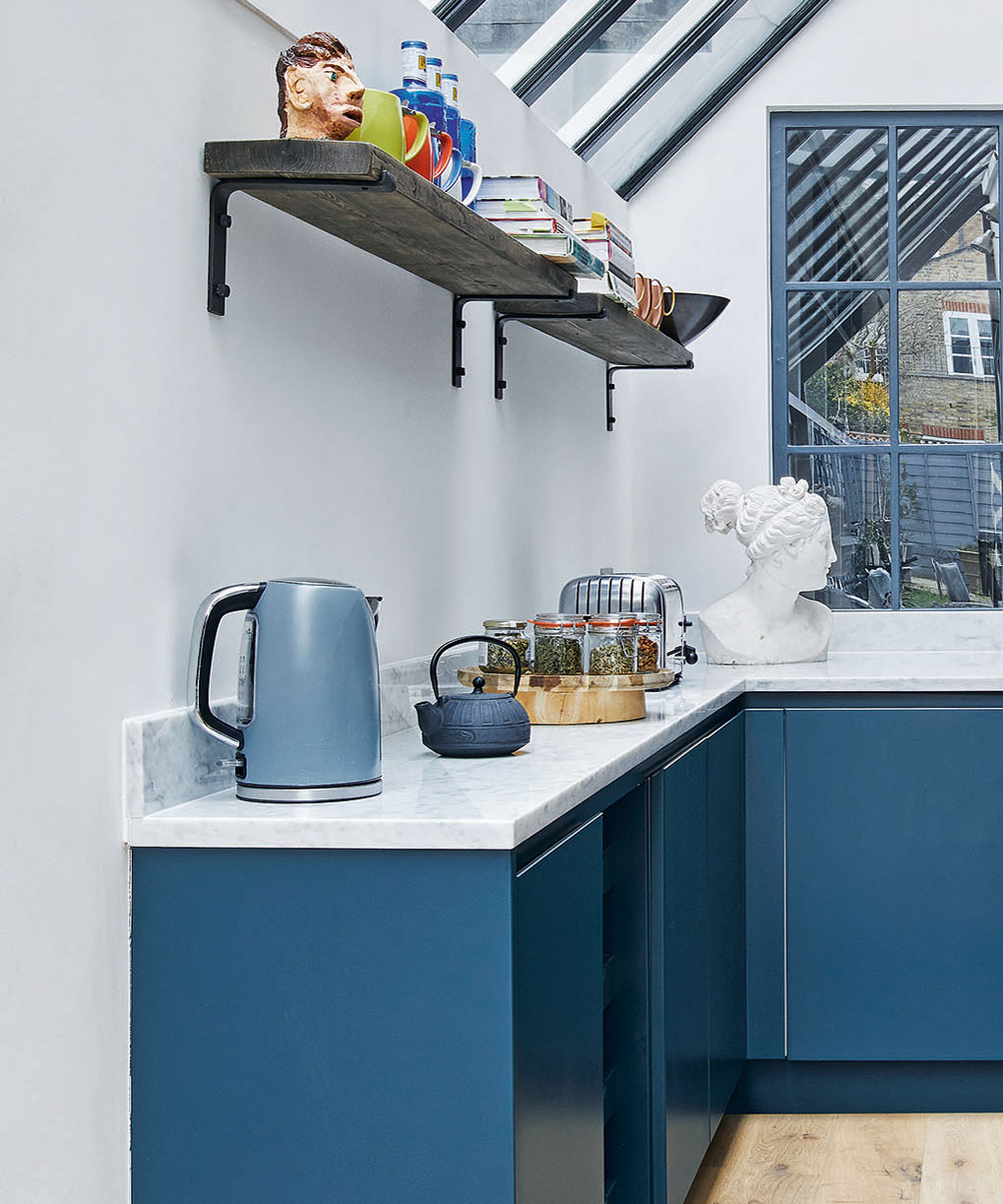
If your appliance starts making an uncharacteristically loud noise, chances are it's time for a replacement.
'If you hear noises such as humming or whistling or excessive noise that is out of the ordinary, you'll want to consider a repair or replacement,' says Michael Clarke, founder of Pulled home-management platform.
While a vacuum, for example, is a noisy appliance, knowing when to replace it is important, as new excessive noise could be signalling a mechanical issue, indicating that it's time for a new one.
2. Rust or cracks
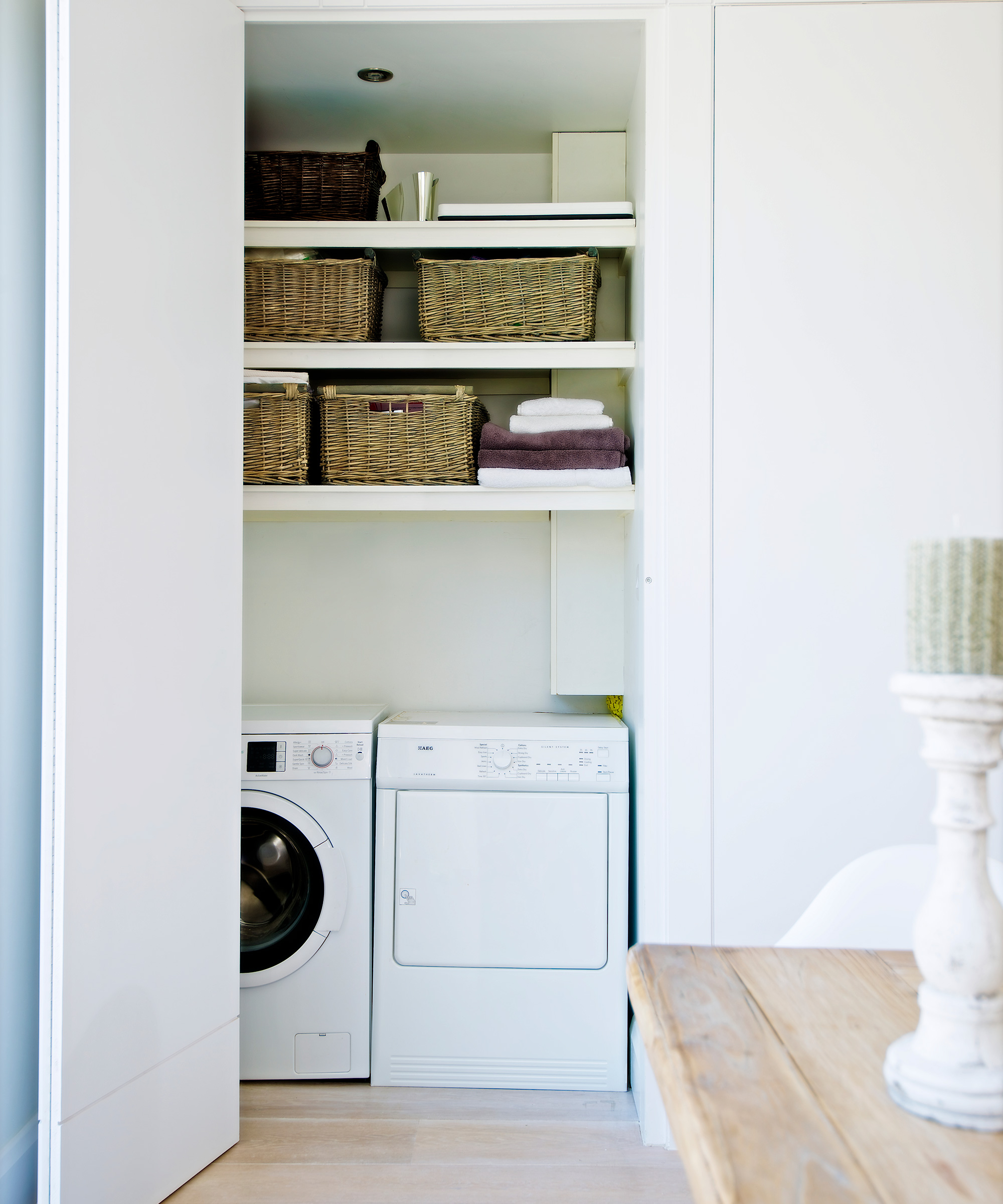
Keeping an eye on the condition of your appliances is important, so if you notice any signs of wear and tear, such as rust or cracks, that could be potentially dangerous.
Design expertise in your inbox – from inspiring decorating ideas and beautiful celebrity homes to practical gardening advice and shopping round-ups.
'Rust is a significant indicator that your appliance needs to be replaced,' says Moniqueca Sims, owner of SGG Appliance Academy. 'Additionally, other signs of wear and tear, such as cracks, may also suggest it's time for a replacement.'
Using rusty kitchen appliances is a no-no as consistent consumption of rust is a health hazard, while cracked appliances might leave wiring exposed, posing potential risks of electric shocks and fires.
3. Smell of gas
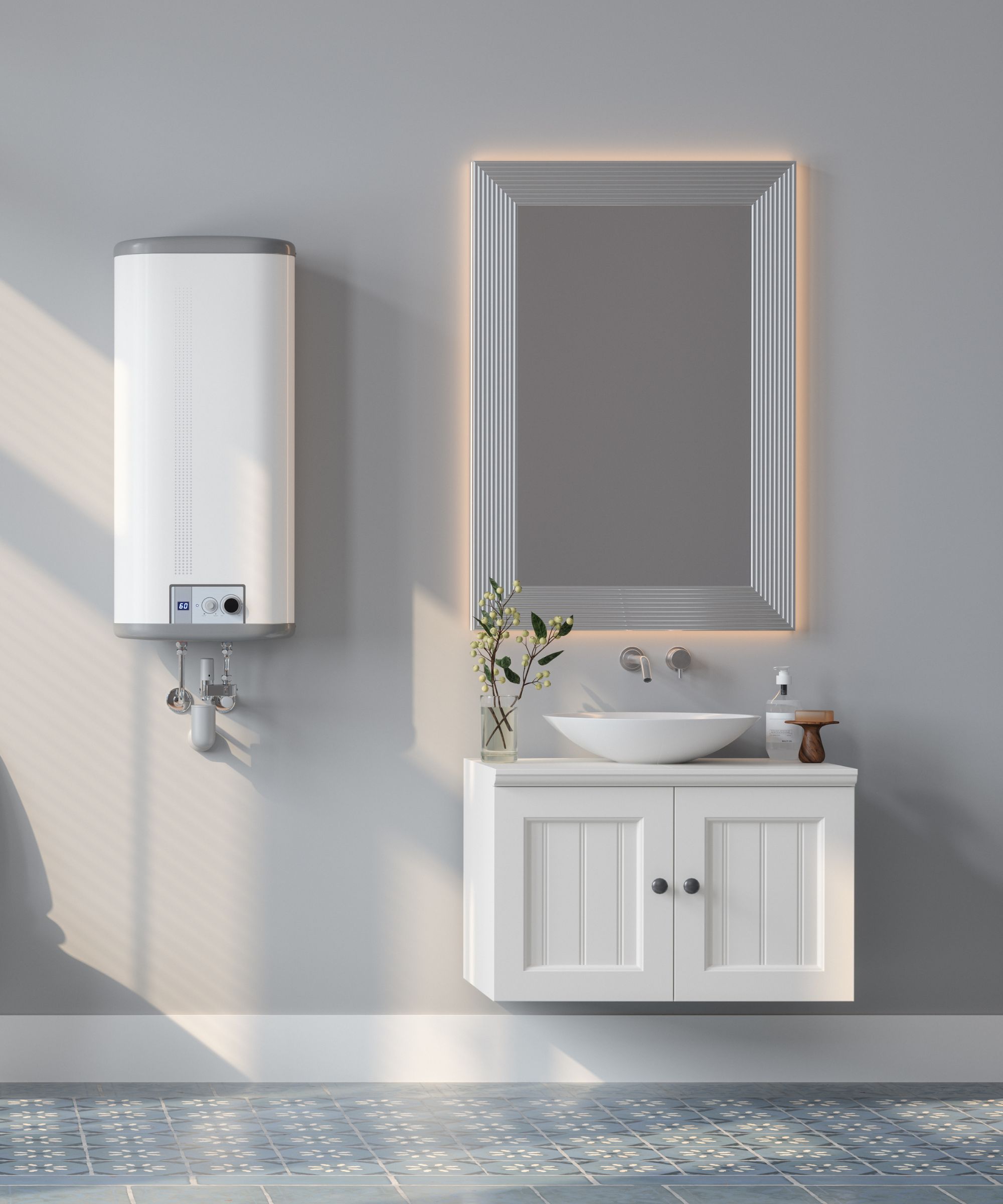
This one warrants immediate attention and action as the outcome, if left unchecked can quickly lead to tragedy.
'Warning signs that your appliance should no longer be used include the smell of gas, which indicates a potential gas leak,' says Sims. 'A gas leak can lead to carbon monoxide poisoning or an explosion.'
If you notice a smell of gas, contact a professional immediately and ventilate the area, opening any windows and doors. Don't turn any appliances on or off at the wall sockets, and turn your gas off at the meter, if possible. Then leave the property while you wait for help.
You can also invest in an additional gas detector, such as the TOPTES store PT520A Natural Gas Detector available at Amazon, which can accurately help you find the cause of a gas leak of dangerous combustible gases such as methane, natural gas, propane and gasoline.
4. Your appliance no longer works effectively
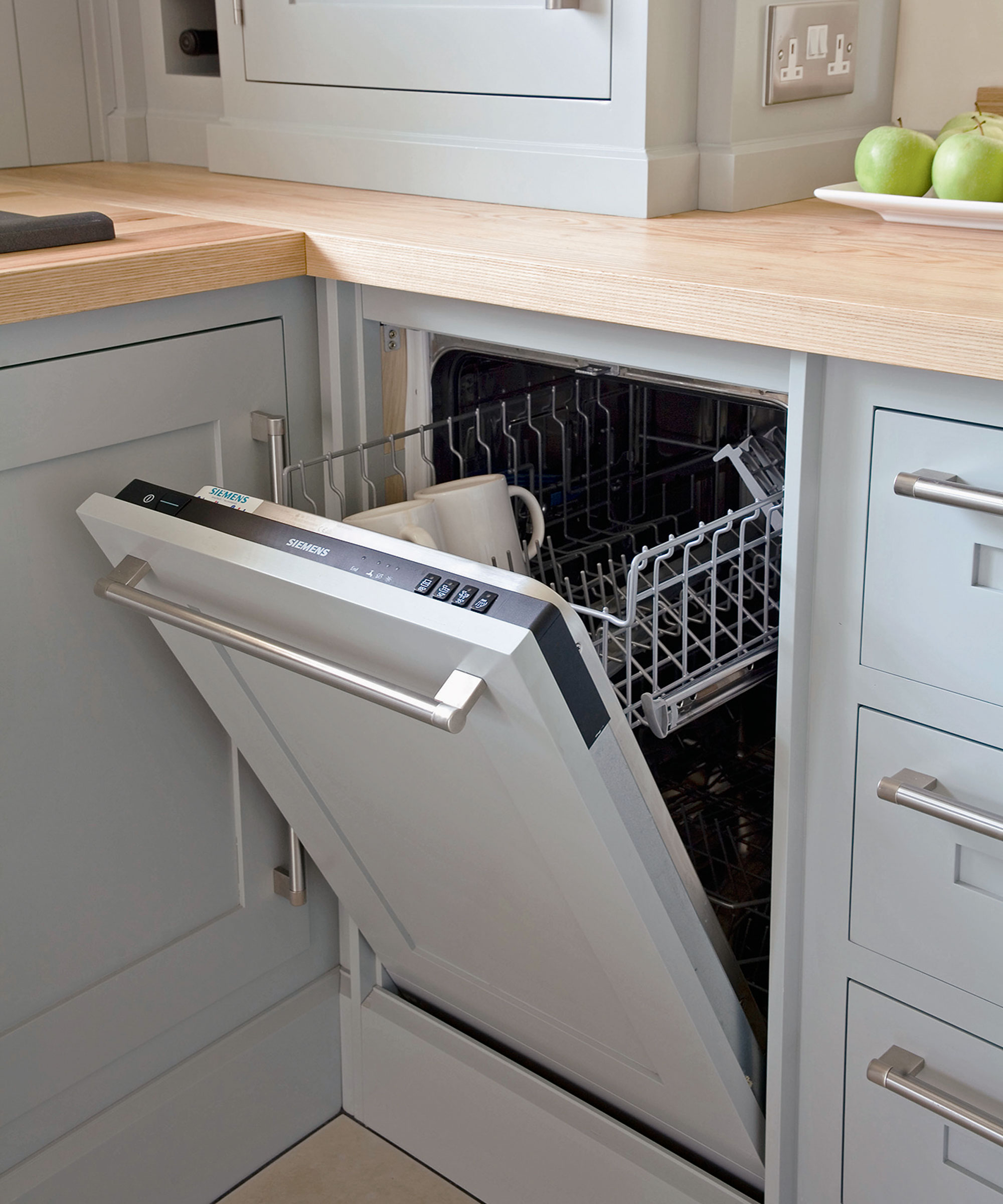
If your appliance no longer works effectively or as it should, it may have reached the end of its life-cycle.
'Consider replacing your washing machine if your clothes aren't getting clean or if the drum isn't filling with water properly,' says Lance Sinclair, president of Mister Sparky professional electricians, experts in safeguarding against electricity's inherent dangers. 'This appliance usually lasts 10-15 years.'
For your dishwasher, proper maintenance, such as keeping it clean and rinsing dishes before loading, can extent its life to 10-11 years. 'But, if your dishes come out with spots or the cycle stops prematurely, it might be time for a new one,' says Sinclair.
Other examples of when a replacement is needed include if your vacuum cleaner no longer cleans your floor properly, or if you begin to notice more dust than usual in your home with your current HVAC system, Sinclair recommends.
If you're unsure which appliance is right for you, we have a guide on the best clothes dryers, best washing machines, and the best places to buy refrigerators, so you can be informed before you invest.
5. There's a significant increase in your energy bills

Everybody's looking to cut energy bills, and no one wants to spend more money than is necessary – and a sudden, unexplained increase in your monthly amounts could be an indicator that your older appliances needs replacing.
'Older appliances tend to consume more energy, and if you notice a significant increase in your utility bills, it could be due to an inefficient appliance that should be replaced with a more energy-efficient model,' says Sims.
Look at your commonly used appliances and gauge when they were purchased. If you suspect it was 10 years ago or more, it's probably time for a replacement. This will not only help you save money at home, it will also modernize your space.
Using a plug in electricity meter, such as the #1 Bestseller MECHEER Upgraded Watt Power Meter Plug available at Amazon, can also assist you with monitoring the cost of your appliances by calculating and displaying an up-to-date electricity bill cost, so you'll notice if anything significant changes, and won't be caught out at the end of the month.
6. Your appliance is tripping the circuit breaker

'If your appliance keeps tripping the circuit breaker, it may indicate an electrical issue that poses a fire risk,' says Sims.
The most common cause of this is a faulty plug or cable, so once you've identified which appliance is causing the issue, recycle it safely and replace it. Other signs of cable damage include fraying and exposed wires.
7. Smoking or leaking water
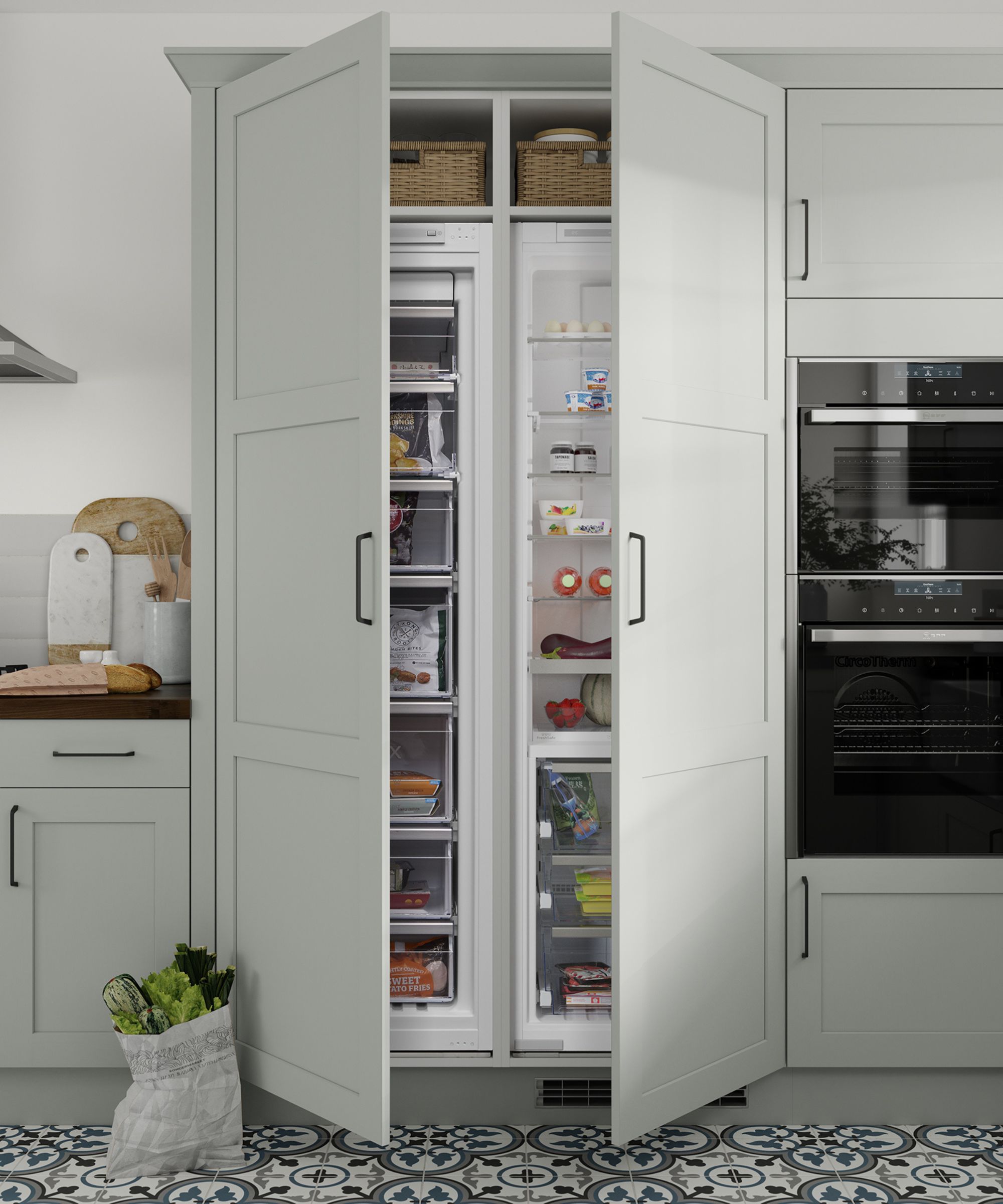
Wondering why your air conditioner is leaking water? Physical signs, such as smoking or leaks are a clear indicator to watch out for that it's time to replace your appliance.
'If an appliance starts smoking, this is a serious fire hazard, and you should stop using it immediately,' says Sims. If possible, safely unplug the appliance and dispose of it correctly, or contact a professional for help.
'Smoking may also be a sign of overheating, which is a critical sign, particularly for dryers,' says Sims. 'If your dryer is overheating, please stop using and have a professional look it over,' and replace with one of the best clothes dryers to avoid issues later down the line.
Additionally, water leaks, from a fridge or freezer in particular, can cause flooding and water damage. 'It also increases the risk of electrical shocks, so discontinue use and replace if you notice leaks,' warns Sims.
8. Cost of repair is higher than replacement

Finally, if the cost of repairing your appliance will cost more than a replacement, or if repair parts are no longer available, it's time for a new one, as this is usually an indicator that your appliance will not be maintaining efficient functionality. The manufacturer may have discontinued parts as there are new, different models and versions on the market instead.
'Although almost all appliances can be repaired and this is typically the most cost-effective option, there are times when the cost of repair is so high that replacing the unit makes more sense,' says Sims. 'Newer appliances are designed to last about seven to eight years, so depending on the age of your unit, replacement might be a wise consideration.'
FAQs
What is the average lifespan of household appliances?
The average lifespan of appliances around your home is around a decade.
Gas cookers should be replaced every 15 years, while dryers and refrigerators will last around 12-13 years.
On the shorter end of the spectrum, microwaves and dishwashes usually need replacing every nine years, and smaller kitchen appliances, such as blenders and toasters, will usually need to be replaced every five to six years.
Which brand of appliances last the longest?
Appliances are expensive, so before making an investment it's worthwhile to know which will last the longest and make the best kitchen purchases.
Brands such as Bosch, Whirlpool, Dyson, and Samsung are durable and high-performing, but consider other factors, such as warranty, when choosing the best kitchen appliance for you.
You can always go into a store, too, and chat to professionals for further guidance.
'To determine whether replacing or repairing your appliance is necessary, we recommend using the 5-10-15 rule,' says Clarke. 'Under this rule, if your appliance is 5 years old or newer, it could be better to repair; if it is between 5 and 10 years old, it's a good idea to compare the costs of repairing to replacing; and if it’s 15 years old or older, it's usually best to replace it.'
Once you've determined which appliances need replacing, you can turn your attention to how to clean the ones you're keeping.

Ottilie joined Homes & Gardens in 2024 as the News Writer on Solved, after finishing a Master's in Magazine Journalism at City, University of London. Now, as the Sleep Editor, she spends her days hunting deals and producing content on all things sleep – from mattresses and sheets to protectors and pillows, all of which she tests in her own home. She also has particular expertise in home fragrance, covering everything from candles to reed diffusers.
Previously, she has written for Livingetc and Motorsport Magazine, and also has a Master's degree in English Literature and History of Art from the University of Edinburgh, where she developed a love for inspiring interiors and architecture.